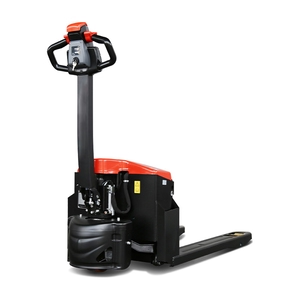The Environmental Impact of Electric Forklifts: Sustainability in Warehousing
In today’s world, sustainability and environmental consciousness have become increasingly important topics in every industry, including warehousing. With the rise of global warming and the depletion of natural resources, many companies are now looking for ways to reduce their carbon footprint and operate in a more sustainable manner. One area where significant improvements can be made is in the choice of equipment used in warehouses, such as forklifts.
Emissions Reduction
When it comes to forklifts, traditional models that run on gasoline or diesel emit harmful pollutants into the air, contributing to air pollution and climate change. These emissions can have detrimental effects on both human health and the environment. On the other hand, electric forklifts are powered by electricity, which is a much cleaner and more sustainable energy source.
Improved Air Quality
By choosing electric forklifts over traditional models, warehouses can significantly reduce their carbon footprint and contribute to a cleaner, greener environment. Electric forklifts produce zero emissions at the point of use, helping to improve air quality both inside the warehouse and in the surrounding community. This is especially important for warehouses located in urban areas, where air pollution levels are often higher due to increased traffic and industrial activities.
Reduced Environmental Impact
In addition to reducing emissions, electric forklifts also have a lower overall impact on the environment compared to traditional models. Electric forklifts do not require oil changes or regular maintenance associated with internal combustion engines, resulting in less waste and fewer hazardous materials being released into the environment. Furthermore, electric forklifts have a longer lifespan than traditional models, reducing the number of forklifts that need to be manufactured and contributing to overall resource conservation.
Energy Efficiency
Another major benefit of electric forklift is their energy efficiency. Electric forklifts are more energy-efficient than their traditional counterparts, meaning they require less energy to operate and can help warehouses save on electricity costs. This not only results in cost savings for the warehouse, but also reduces the demand for fossil fuels used to generate electricity, further reducing the environmental impact of warehouse operations.
Noise Pollution Reduction
Furthermore, electric forklifts are quieter and produce less noise pollution compared to traditional forklifts. This can lead to a more pleasant and productive work environment for warehouse employees, as well as less disturbance for neighboring communities. Reduced noise pollution can also have positive effects on wildlife in the area, helping to preserve ecosystems and biodiversity.
Conclusion
Overall, the environmental impact of electric forklifts is a key consideration for warehouses looking to operate in a more sustainable manner. By choosing electric forklifts over traditional models, warehouses can significantly reduce their carbon footprint, improve air quality, conserve resources, and promote a healthier environment for both employees and the community. Making the switch to electric forklifts is not only a smart business decision in terms of cost savings, but also a crucial step towards building a more sustainable future for all.